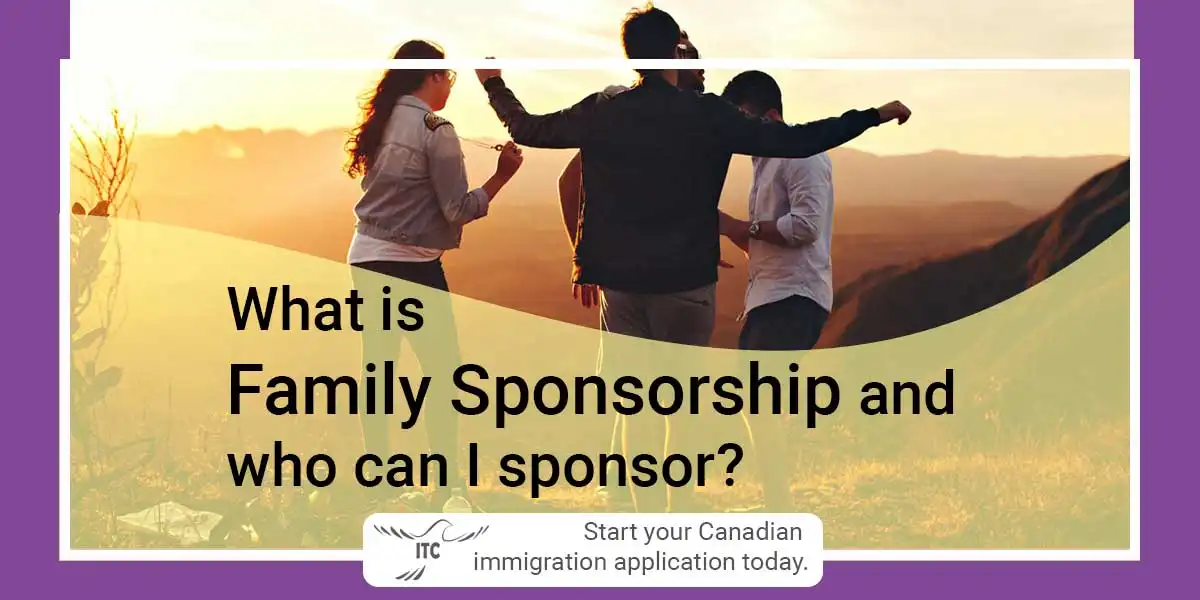Bringing Families Together Through Immigration
Introduction
Family sponsorship is a pivotal aspect of immigration policies in many countries, designed to reunite families by allowing citizens or permanent residents to sponsor relatives for immigration. This heartwarming process not only strengthens familial bonds but also enriches the cultural fabric of the host nation. In this comprehensive guide, we’ll explore the nuances of family sponsorship, the eligibility criteria, and the process involved.
What is Family Sponsorship?
Family sponsorship is a legal pathway provided by many countries, such as the United States, Canada, and Australia, to help reunite families. This program allows citizens or permanent residents to sponsor certain family members, facilitating their immigration and settlement in the sponsoring country. It’s a testament to the value these nations place on family unity and cultural diversity.
Who Can You Sponsor?
The eligibility to sponsor and be sponsored varies across countries, but there are common categories:
Spouse or Partner: Most countries allow the sponsorship of a spouse, common-law partner, or conjugal partner. This includes same-sex partners, reflecting progressive views on relationships.
Children: Dependent children, including adopted children, can often be sponsored. The age limit for dependents varies, but it typically includes minors and may extend to young adults, depending on their financial dependence and marital status.
Parents and Grandparents: Many countries recognize the importance of elders, allowing the sponsorship of parents and grandparents. Some nations have caps or specific conditions for these sponsorships to manage the influx and ensure support for the elderly.
Other Relatives: In certain situations, countries may allow the sponsorship of other relatives, such as orphaned nieces, nephews, or siblings. These cases are often subject to specific conditions or limitations.
Eligibility Criteria for Sponsors
To be a sponsor, you generally need to:
- Be a citizen or a permanent resident of the country you’re sponsoring to.
- Meet certain age requirements, often being at least 18 years old.
- Prove financial stability to support the sponsored relative(s) for a set period.
- Not have significant criminal records or immigration-related offenses.
The Application Process
The family sponsorship process typically involves:
Assessment of Sponsor’s Eligibility: The sponsoring individual must first be deemed eligible by meeting the country’s specific requirements.
Application Submission: This includes completing relevant forms, providing supporting documents (like proof of relationship and financial stability), and paying applicable fees.
Processing and Verification: Immigration authorities review the application, verify documents, and may request additional information or interviews.
Approval and Immigration: If approved, the sponsored family member can complete the immigration process, which may include medical exams and background checks.
Challenges and Considerations
Family sponsorship is not without its challenges:
Financial Responsibility: Sponsors must be financially capable of supporting their relatives, which includes healthcare, living expenses, and education, as applicable.
Processing Times: Depending on the country and category, processing times can vary significantly, sometimes taking years.
Legal Obligations: Sponsors often enter into legal agreements with the government, pledging to support the relative and prevent them from needing social assistance.
Tips for a Successful Application
Complete and Accurate Information: Ensure all forms are filled out accurately and completely. Inconsistencies can lead to delays or rejections.
Organize Supporting Documents: Gather all necessary documents in advance, like marriage certificates, birth certificates, and financial statements.
Understand the Commitment: Be fully aware of the financial and legal responsibilities involved in sponsoring a family member.
Seek Legal Advice: Consider consulting an immigration lawyer or a consultant for guidance, especially in complex cases.
6- Humanitarian and Compassionate Grounds
This program is for people who are already in Canada and do not qualify for other immigration programs. Applicants can apply on humanitarian and compassionate grounds if they have exceptional cases (like family ties or established life in Canada) that would cause undue hardship if they were to leave the country
7- Refugee and Asylum Programs
Canada offers protection to those who face persecution in their home countries. The refugee program is for individuals outside of their home country or the country they normally live in and are unable to return because of that fear of persecution. Asylum seekers can make their claim at a port of entry or at an immigration office within Canada.
Additional Considerations and Tips
Language Proficiency: For most programs, proficiency in English or French is essential. Preparing for and taking language proficiency tests like IELTS or TEF is often a critical step in the immigration process.
Education Credential Assessment (ECA): For educated immigrants, getting your foreign education assessed against Canadian standards can significantly improve your chances of success, especially under the Express Entry system.
Job Offers: While not mandatory for all programs, having a valid job offer from a Canadian employer can boost your application, especially in PNPs.
Legal and Consultation Services: Navigating the immigration process can be complex. Seeking assistance from certified immigration consultants or lawyers might be beneficial.
Settlement Services: Once in Canada, there are numerous settlement services available to help immigrants integrate into Canadian society. These include language training, employment services, and community support.
Stay Informed: Immigration policies can change. Stay updated with the latest information from reliable sources like the Government of Canada’s official website or authorized immigration consultants.
Conclusion
Family sponsorship is a noble and fulfilling process, offering a lifeline to families separated by borders. While it requires commitment and patience, the joy of reuniting with loved ones is unparalleled. By understanding the process and preparing thoroughly, sponsors can navigate this journey with confidence and hope.
FAQs
Can I sponsor a family member if I have a low income?
This depends on the specific requirements of the country. Generally, sponsors need to demonstrate financial stability, but there may be exceptions or support options available.
How long does the sponsorship process take?
Processing times vary widely based on the country, the relationship, and the individual circumstances. It’s essential to check with the relevant immigration authorities for up-to-date information.
Can I sponsor more than one family member?
Yes, but each sponsorship is a separate process with its individual requirements and commitments.
Do you want to have detailed updated information about your visa file?
You can apply for GCMS Report to recieve detailed information about your file; and/or Recieve copy of your file is in process in the IRCC
To find out if you’re eligible for immigration to Canada, simply complete our free assessment! A member of the ITC Immigration Team will review your eligibility and contact you to discuss your options!
Do you want to have detailed updated information about your visa file?
You can apply for GCMS Report to recieve detailed information about your file; and/or Recieve copy of your file is in process in the IRCC



